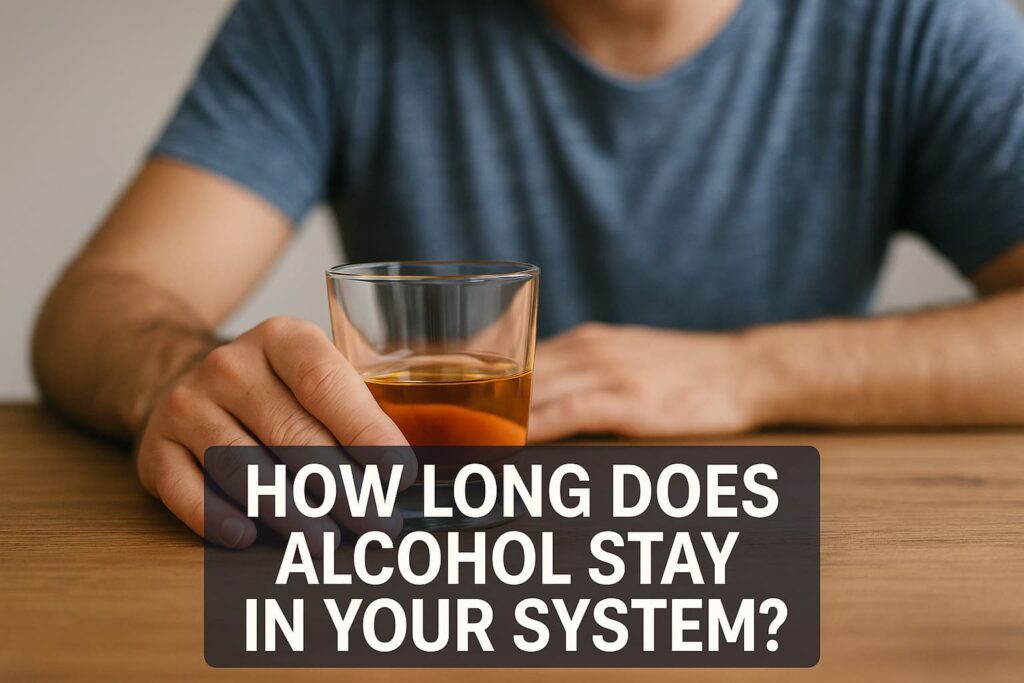Ever had that moment the morning after a few drinks when you think, “Am I still a little tipsy… or just tired?” Yeah, most of us have been there. Whether you’ve got work, a workout, or, let’s be honest, a random breath test to worry about, it’s natural to wonder how long alcohol actually sticks around in your system.
The short answer? It depends. A lot.
How your body handles alcohol
Once you drink, your body gets straight to work breaking the alcohol down. It mostly happens in your liver, which is like the bouncer of your system—it filters out the alcohol at a steady pace. On average, your body processes about one standard drink per hour. That’s roughly a small beer, a glass of wine, or a shot of spirits.
But this “one per hour” rule is more of a general guide than a guarantee. Your weight, gender, metabolism, how much you’ve eaten, and even your tolerance can change how fast (or slow) your body deals with alcohol.
For example, if two people drink the exact same thing at the same time, one might sober up much faster than the other. It’s not fair, but biology doesn’t care.
Detection depends on the test
This is where it gets a bit more specific. Different tests pick up alcohol for different lengths of time:
- Breath: Usually up to 24 hours, but most breathalyzers detect alcohol only for about 12.
- Blood: Typically 6 to 12 hours.
- Urine: Standard tests catch it for 12 to 24 hours, but more advanced ones can detect it for up to 72 hours.
- Saliva: Around 12 to 24 hours.
- Hair: This one’s wild—alcohol can show up in hair for up to 90 days. So yeah, if someone really wants to know, there are ways.
If you just had one drink with dinner, chances are your body clears it out fairly quickly. But if it was a heavy night, that’s a different story. Alcohol can build up faster than your liver can process it, so it takes longer to fully leave your system.
“Sleeping it off” isn’t magic
A lot of people think that if they just sleep a few hours, they’re good to go. Not exactly. Sleep helps your body recover, but it doesn’t speed up alcohol metabolism. If you went to bed with a high blood alcohol level, you might still have some left in the morning.
That’s why some people wake up groggy, with that weird half-hungover, half-dizzy feeling. Your body is literally still working on the leftovers.
Things that affect how long it stays
Let’s break it down a bit:
- Body size: Smaller people usually process alcohol slower.
- Food: Drinking on an empty stomach means faster absorption. Not great.
- Gender: Women generally metabolize alcohol slower than men because of body composition and enzyme levels.
- Type of drink: Stronger drinks take longer to break down. A shot of whiskey isn’t the same as a light beer.
- Overall health: A healthy liver = faster processing. If your liver’s struggling, it’s going to take longer.
So… how long, really?
If you want a ballpark:
- 1 drink = about 1 hour
- 2 drinks = about 2–3 hours
- 5 drinks = could take most of the night and into the next morning
Again, that’s just an estimate. There’s no instant fix to flush it out. Water, coffee, or a greasy breakfast might make you feel more human, but they don’t actually get rid of the alcohol any faster.
The bottom line
Alcohol can stay in your system anywhere from a few hours to a few days, depending on how much you drank and how your body works. If you’re planning to drive or do something that requires full focus, don’t rely on guesswork. Give your body time.
Honestly, the safest way to avoid problems is to pace yourself and know your limits. Or better yet, just plan ahead—Uber, cab, designated driver, whatever works.
It’s not about being paranoid, it’s about being smart. No one wants to explain to their boss why they failed a breath test at 9 a.m. the next day.
Also read:
